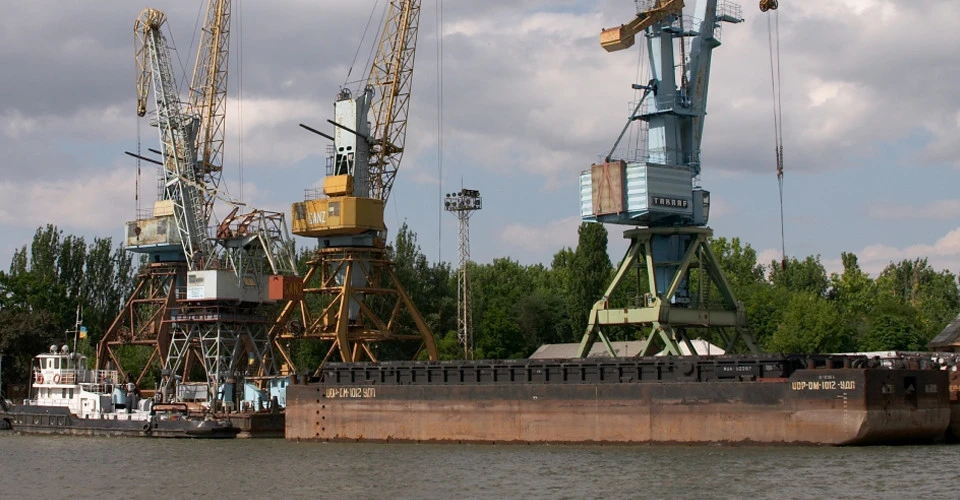
How Russia is turning food into a weapon
In addition to the fact that the Kakhovka dam blowing up threatens to destroy most of the agricultural land in southern Ukraine, the Russian authorities decided that this was not enough and announced a naval blockade of the country's ports.
Julian Borger is the Guardian's world affairs editor emphasizes that Russia targeted not only exports, but also inland, attacking the Danube ports of Reni and Izmail.
The global cereal price index rose 10% in late July due to Russia's blockade of the Black Sea grain initiative, causing a possible 20% price increase by the end of summer. Turkey's president, Recep Tayyip Erdoğan, appeals to Putin, but grain business experts are skeptical of reviving the deal.
Russia turnes food into a weapon
Ukraine provided half of the wheat that the World Food Program bought on world markets and sent to Afghanistan, Ethiopia, Kenya, Somalia, Sudan, and Yemen. Now, WFP has to buy grain at a higher price and transport it from ports much further away.
The World Food Programme (WFP) faces challenges in feeding the same number of people due to underfunding and a shortage of funds. The organization is cutting ration sizes and feeding numbers, stating that people are already struggling.
WFP executive director Cindy McCain claimed that families battling for survival were "collateral damage" caused by the war.
Over 50 nations supply arms to Ukraine, but no concerted response for food security. The EU and Croatia offer "solidarity lanes" for Ukraine's food exports, while the Baltic states offer their own ports.
Westward land routes in Ukraine are complicated and expensive due to wider railway tracks. Ukrainian grain imports are banned by neighboring European countries, but lorries still face long lines on the Poland border due to veterinary checks.
The Danube export route for grains
The establishment of "green corridors," which would let Ukrainian exports go without customs, sanitary, or veterinary inspections until they reached their final port, is being discussed but has not yet been decided.
Shipping from Baltic or other western European ports to Africa or Asia also incurs significant expenditures for the WFP.

Contracts in other locations may come at a cost, causing delays in reaching essential food sources.
Transferry's commercial director, Aleksandr Korolyov, claims the extra cost of exporting grain through Germany is €150 a tonne, making the trade unprofitable. Ukraine suggests an international fund to cover the excess.
Korolyov emphasized the lack of viable alternatives to the BSGI, suggesting using Danube River ports in Ukraine and Romania for shipments.
Freighters can safely navigate Romanian, Bulgarian, and Turkish territorial waters to the Bosphorus strait, a route that accounted for 20m tonnes last year. With investment, it could reach 35m tonnes a year.
Russians are aware of the Danube route as a great alternative and are working to cut it off. Drone strikes on Reni and Izmail destroyed warehouses and a huge amount of grain, impacting ship crews, owners, and insurers.
Air defenses could be deployed around Ukrainian river ports, but Russians could attack through other means. Two years ago, Ukrainian and Romanian authorities believed the sinkings were a trial run by Russian intelligence.
The Danube delta faces security concerns and capacity constraints due to congested channels, narrow ships, and a shortage of vessels and crews. Rusty barges and retired river pilots are being pulled into service, and Romania's small cartel operates tugboats and pusher craft, making foreign firms difficult to enter.
One European investor suggests Constanta port could be expanded quickly due to open spaces, safe working zone, silos, and rail connections. However, the port faces organized crime issues, making the expansion slow and corrupt. The Danube route's size is limited by water levels, requiring countries like Germany, Austria, Hungary, and Serbia to open locks. Increasing calls for a civilian Ramstein format coordinating alternative routes.
A special body is needed to solve the grain issue
Ukrainian officials seek a special body to address such issues, citing existing international institutions as amorphous and unwilling to speak out against Putin. Biden’s administration is wary of such a fix.
Some believe the global food system has thousands of smaller players trying to find his own way to move grain. Others believe Russia's treatment of food as a weapon of war threatens Ukraine, the west, and the hungry population.
Fiona Hill, former senior director for European and Russian affairs at the US national security council, suggests applying some rationale to food security, enabling the market to function without weaponizing or destroying one part of the system.
- News














































